Negotiation as a tool in Alternative Dispute Resolution
Negotiation may be defined as any form of direct or indirect communication through which parties who have conflicting interests discuss the form of any action which they might take together to manage and ultimately resolve the dispute between them. Negotiations may be used to resolve an existing problem or to lay the groundwork for a future relationship between two or more parties.
I am using Systeme.io, the world’s friendliest business engine…it’s FREE…forever!
Negotiating requires give and take. It would help if you aimed to create a courteous and constructive interaction that is a win-win for both parties. Ideally, a successful negotiation is where you can make concessions that mean little to you while giving something to the other party that means a lot to them. Your approach should foster goodwill, regardless of the differences in party interests. A good negotiation leaves each party satisfied and ready to do business with each other again.
When preparing to negotiate, business professionals often wonder what types of negotiation are available to them. Some of the most common are distributive negotiation and integrative negotiation.
In distributive negotiation, parties compete over the distribution of a fixed pool of value. Here, any gain by one party represents a loss to the other. You may also hear this referred to as a zero-sum negotiation or win-lose negotiation.
Integrative negotiation gives us one of the biggest chances of a win-win. In these types of negotiation situations, there is more than one issue to be negotiated, and negotiators have the potential to make trade-offs across issues and create value. In many cases, distributive negotiations can become integrative if we take the time to search for additional issues to include.
I am using Systeme.io, the world’s friendliest business engine…it’s FREE…forever!
Negotiate successfully by following these 7 steps
Don’t jump into a negotiation without any planning or thought for what you might do if you hit a snag. In order to negotiate successfully, good negotiators prepare before a negotiation.
The information that follows outlines seven steps you can use to negotiate successfully.
I am using Systeme.io, the world’s friendliest business engine…it’s FREE…forever!
- Gather Background Information:
When gathering background information, include the style, values, ethnicity, culture, demographics (younger negotiators on/using Twitter, Facebook, Linkedin, and their way of communicating, versus those that are slower to use these mediums) and other information that’s pertinent to that particular negotiation session.
- Assess your arsenal of negotiation tactics and strategies:
The more you’re aware of how to use the appropriate tactic with the appropriate strategy, applied at the appropriate time, the more options you’ll have and be able to execute during the negotiation.
- Create Your Negotiation Plan:
Consider the overall strategy you’ll use for the negotiation. Break strategies into tactics. Assess possible strategies the other negotiator might employ. Take into consideration the use of red herrings (Note: Red herrings are items that have little to no value to you that you position as having value, but items that possess real value to the other negotiator). Also consider how you might apply pressure to points (leverage) throughout the negotiation.
- Engage in the Negotiation Process:
Observe body language and mannerisms. This can be done in person, via the phone, and in writing (e-mail, etc.). Note the style in which the other person negotiates (i.e. friendly (let’s get along), reserved (I’m not quite sure how this is going to go and I’m apprehensive), hostile (I’ll show you mine, if you show me yours – the only way for me to win is for you to lose – I’m in the driver’s seat; it’s my way or the highway).
- Closing the Negotiation:
Be on high alert for the conclusion of what you think is an agreement, serving as the next phase of the negotiation; in some cultures, this is a common practice. If you’re unsure of the other negotiators sincerity, put deliverables into phases of the negotiation.
- Conduct a Postmortem:
Dissect the negotiation. Assess what went right – What could have been improved upon – What you learned from that negotiator about negotiation styles – What lessons should be taken forth into other negotiations – What went wrong – Why did it go wrong – What could you have done differently – What prevented you from using a better tactic/strategy to allow you to gain control of the negotiation).
- Create Negotiation Archive:
Create an archive of your negotiations and store them in a repository. Set up keywords to cross-reference sections, tactics, and strategies in your negotiation write-ups, to be used for the extraction of quick ideas and serve as a resource, for future negotiations.
Tips for Effective Negotiation
I am using Systeme.io, the world’s friendliest business engine…it’s FREE…forever!
Don’t:
- confuse negotiation with confrontation – you should remain calm, professional and patient
- become emotional — remember to stick to the issue, don’t make it personal, and avoid becoming angry, hostile or frustrated
- blame the other party if you can´t achieve your desired outcome.
Do:
- be clear about what you are offering and what you need from the other party
- be prepared — think about what the other party needs from the deal, and take a comprehensive view of the situation
- be consistent with how you present your goals, expectations and objectives
- set guidelines for the discussion and ensure that you and the other party stick to them throughout the entire process
- use effective communication skills including positive body language
- prepare for compromise
- strive for mutually beneficial solutions
- consider whether you should seek legal advice
- ask plenty of questions
- pay attention to detail
- put things in writing.
Unlike arbitration and mediation, the outcome of a negotiation is reached by parties together without resorting to a neutral third party. The process is flexible and informal and also ensures confidentiality at the choice of the parties.
I am using Systeme.io, the world’s friendliest business engine…it’s FREE…forever!

Disclaimer: This page contains affiliate links. If you choose to make a purchase after clicking a link, I may receive a commission at no additional cost to you. Thank you for your support!





